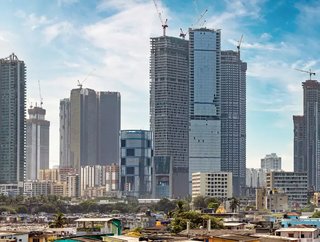WEF: 5 Ways India Can Realise its Manufacturing Potential

The Catastrophic Impact of COVID-19
Titled ‘Shifting Global Value Chains: The India Opportunity', the World Economic Forum (WEF) emphasises the catastrophic impact COVID-19 has had on global economies and businesses.
The pandemic has disrupted manufacturing and global value chains (GVCs) at various stages of the production cycle, as well as accelerated the ongoing shifts in GCVs, which WEF notes are being driven by three megatrends:
- Emerging technologies
- The environmental sustainability imperative
- The reconfiguration of globalisation
With this context, “India has a unique opportunity to become a global manufacturing hub,” as global companies look to adapt their manufacturing and supply chain strategies to become more resilient.
What Makes India Prime to Become a Global Manufacturing Hub?
The WEF has identified three assets that India can capitalise on to seize this opportunity:
- The potential for significant domestic demand
- The government's drive to encourage manufacturing
- Its distinct demographic edge (including its considerable proportion of young workers)
“These factors will position India well for a larger role in GVCs,” says the WEF. By growing a thriving manufacturing sector, the WEF believes that this will also generate additional benefits for India, and help to deliver the imperatives to create economic opportunities to distribute wealth more equitably and to contain its increasing trade deficit.
Produced in collaboration with Kearney, the WEF’s white paper emphasises India’s role in reshaping GVCs, and its potential to contribute over US$500bn in annual economic impact to the global economy by 2030.
Realising its Manufacturing Potential
Reflecting the perspective of leaders across industries in India, the WEF’s white paper highlights five solutions for the region to realise its potential:
- Co-ordinating actions between government and private sector to develop globally competitive manufacturing companies
- Shifting focus from cost advantages to building capabilities via workforce skilling, innovation, quality, and sustainability
- Accelerating GVCs integration by reducing trade barriers and enabling competitive global market access for India
- Reducing the cost of compliance and establish capacity faster
- Developing infrastructure cost savings, speed and flexibility
“For India to become a global manufacturing hub, business and government leaders need to work together to understand ongoing disruptions and opportunities, and develop new strategies and approaches aimed at generating greater economic and social value”, said Francisco Betti, Head of Shaping the Future of Advanced Manufacturing and Production, World Economic Forum.
“A thriving manufacturing sector could potentially be the most critical building block for India’s economic growth and prosperity in the coming decade. The ongoing post-COVID rebalancing of Global Value Chains offers India’s government and business leaders a unique opportunity to transform and accelerate the trajectory of manufacturing sector”, said Viswanathan Rajendran, Partner, Kearney.
To read the full white paper, click here.
- How Smart Factories are Reshaping the Manufacturing SectorSmart Manufacturing
- Crowe UK: 2024 Manufacturing Outlook Report Explores GrowthProduction & Operations
- Top 10: Chief Manufacturing OfficersProduction & Operations
- Aerospace Insight: Where does Boeing make all of its PlanesProduction & Operations






